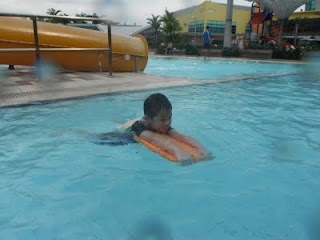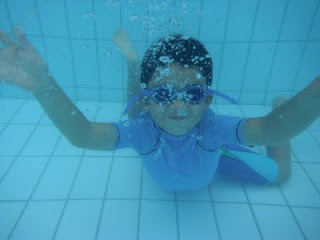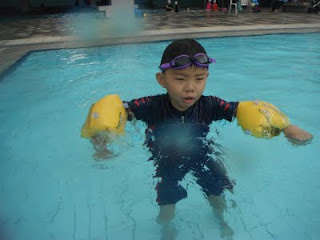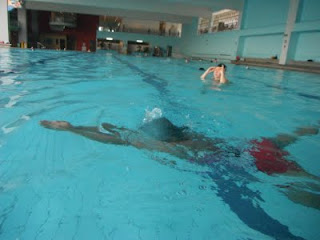26 December 2011
03 December 2011
01 December 2011
11 November 2011
Swimming Coach
Looking for a Swimming Coach
I'm Coach Jeff
Check out my swimming blog for more details
http://jeffswim.blogspot.com
or contact me at 9388 7383
I'm Coach Jeff
Check out my swimming blog for more details
http://jeffswim.blogspot.com
or contact me at 9388 7383
28 September 2011
Parents, Pls go to Facebook on your right!!!
Dear Parents,
Please add me in Facebook where all announcements/info will be communicated.
Pictures of your child can be download from there.
See You !!
Scroll down for videos & pictures.
Enjoy
Please add me in Facebook where all announcements/info will be communicated.
Pictures of your child can be download from there.
See You !!
Scroll down for videos & pictures.
Enjoy
24 September 2011
Advance Coaching in Competitive Swimming with National Coach David Lim : 19th -23rd Sept 2011
Its was a privilege to watch & learn from our National Swim Coach David Lim during a training session with his National Swimmers Rayner, Rachel & Megan.
Me in the background learning from David on some swim drills
01 September 2011
Does swimming make you smarter?
Research indicates: YES
LEARNING to swim could make children smarter, Queensland researchers believe.
A Griffith University research project will survey more than 10,000 youngsters aged up to five to find out if swimming advances physical, social, intellectual and language development.
Professor Robyn Jorgensen said anecdotal evidence found swimmers tended to be more confident than same-age, non-swimming peers.
She said the study was in its second year and is measuring the development of youngsters learning to swim against international milestones of child development..
"The preliminary data is coming back quite positive," she said. "Children in swimming schools appear to be more advanced in terms of their development." .
Ms Jorgensen said the research will also monitor young swimmers at 60 swim schools across Australia and cross reference the results with the earlier surveys..
"Then we'll take a smaller sample of children and test them against the milestones," she said. She said the swim teaching industry had ordered the research..
"When they're working with young kids, they've noticed the ones who have been in swimming longer are more advanced," she said..
Ms Jorgensen said this study was the largest of its kind in 30 years. The study will be run for four years..
http://www.news.com.au/breaking-news/sink-or-swim-does-swimming-make-you-smarter-research-indicates-yes/story-e6frfku0-1225946698740
LEARNING to swim could make children smarter, Queensland researchers believe.
A Griffith University research project will survey more than 10,000 youngsters aged up to five to find out if swimming advances physical, social, intellectual and language development.
Professor Robyn Jorgensen said anecdotal evidence found swimmers tended to be more confident than same-age, non-swimming peers.
She said the study was in its second year and is measuring the development of youngsters learning to swim against international milestones of child development..
"The preliminary data is coming back quite positive," she said. "Children in swimming schools appear to be more advanced in terms of their development." .
Ms Jorgensen said the research will also monitor young swimmers at 60 swim schools across Australia and cross reference the results with the earlier surveys..
"Then we'll take a smaller sample of children and test them against the milestones," she said. She said the swim teaching industry had ordered the research..
"When they're working with young kids, they've noticed the ones who have been in swimming longer are more advanced," she said..
Ms Jorgensen said this study was the largest of its kind in 30 years. The study will be run for four years..
http://www.news.com.au/breaking-news/sink-or-swim-does-swimming-make-you-smarter-research-indicates-yes/story-e6frfku0-1225946698740
15 August 2011
Tri Z Sisters Open Water Swim at ECP 12Aug2011
14 August 2011
02 August 2011
Development of a Child in Motor Skill
A motor skill is a learned sequence of movements that combine to produce a smooth, efficient action in order to master a particular task.
Infantile: Early movements made by very young infants are largely reflexive. An infant is exposed to a variety of perceptual experiences through the five senses: vision, hearing, touch, taste, and smell. Gradually, the infant learns that certain involuntary, reflexive movements can result in pleasurable sensory experiences, and will attempt to repeat the motions voluntarily in order to experience the pleasurable sensation.
Fatigue: the deterioration of performance when a stressful task is continued for a long time, similar to the muscular fatigue experienced when exercised for a rapid rate or lengthy period of time. Fatigue is caused by over-arousal. Fatigue impacts an individual in many ways: perceptual changes in which visual acuity or awareness drops, slowing of performance (reaction times or movements speed), irregularity of timing, and disorganization of performance.
Vigilance: the effect of the loss of vigilance is the same as fatigue, but is otherwise caused by the lack of arousal. Some tasks include jobs that require little work and high attention.
Cognitive Phase: When a learner is new to a specific task, the primary thought process starts with, “what needs to be done?” Considerable cognitive activity is required so that the learner can determine appropriate strategies to adequately reflect the desired goal. Good strategies are retained and inefficient strategies are discarded. The performance is greatly improved in a short amount of time.
Associative Phase: the learner has determined the most effective way to do the task and starts to make subtle adjustments in performance. Improvements are more gradual and movements become more consistent. This phase can last for a long time.
Autonomous Phase: this phase may take several months to years to reach. The phase is dubbed because the performer can now “automatically” complete the task without having to pay any attention to. Examples include walking and talking or sight reading while doing simple arithmetic.
Discrete tasks: an instrument or a sport, the performance level drops significantly but will be better than a new learner. The relationship between the two tasks is that continuous tasks usually use gross motor skills and discrete tasks use finer motor skills.
Development of motor skills
Due to the immaturity of the human nervous system at the time of birth, children grow continually throughout their childhood years. Many factors contribute to the ability and the rate that children develop their motor skills. Uncontrollable factors include: genetic or inherited traits and children with learning disorders. A child born to short and overweight parents is much less likely to be an athlete than a child born to two athletically built parents. Controllable factors include: the environment/society and culture they are born to. A child born in the city is much less likely to have the same opportunities to explore, hike, or trek the outdoors than one born in the rural area. For a child to successfully develop motor skills, he or she must receive many opportunities to physically explore the surroundings.Infantile: Early movements made by very young infants are largely reflexive. An infant is exposed to a variety of perceptual experiences through the five senses: vision, hearing, touch, taste, and smell. Gradually, the infant learns that certain involuntary, reflexive movements can result in pleasurable sensory experiences, and will attempt to repeat the motions voluntarily in order to experience the pleasurable sensation.
- Repetition is an important concept in motor learning. New motor skills can be reinforced through practice in order to become stronger, more fluid, and more coordinated. With enough practice, these movements become automatic and require no thought on behalf of the individual to execute. The most common example is swimming, constant repeated kicks in the swim class until it reach a state of automatic..may take up to 6-9mths, some up to a year!
- Children, through negative perceptual responses or no desire to partake in physical challenges, will show a delay in developing certain motor skills and automaticity. This is sometimes the cause of “clumsiness” that some children have.
- 6 months – can sit straight
- 12 months – takes first steps
- 24 months – can jump
- 36 months – can cut with scissors; runs on toes
Influences to development
Stress and arousal: stress and anxiety is the result of an imbalance between demand and the capacity of the individual. Arousal is the state of interest in the skill. The optimal performance level is moderate stress or arousal. An example of too low of arousal state is an overqualified worker performing repetitive jobs. An example of stress level too high is an anxious pianist at a recital.Fatigue: the deterioration of performance when a stressful task is continued for a long time, similar to the muscular fatigue experienced when exercised for a rapid rate or lengthy period of time. Fatigue is caused by over-arousal. Fatigue impacts an individual in many ways: perceptual changes in which visual acuity or awareness drops, slowing of performance (reaction times or movements speed), irregularity of timing, and disorganization of performance.
Vigilance: the effect of the loss of vigilance is the same as fatigue, but is otherwise caused by the lack of arousal. Some tasks include jobs that require little work and high attention.
Stages of Motor learning
The stages to motor learning is the cognitive phase, the associative phase, and the autonomous phase.Cognitive Phase: When a learner is new to a specific task, the primary thought process starts with, “what needs to be done?” Considerable cognitive activity is required so that the learner can determine appropriate strategies to adequately reflect the desired goal. Good strategies are retained and inefficient strategies are discarded. The performance is greatly improved in a short amount of time.
Associative Phase: the learner has determined the most effective way to do the task and starts to make subtle adjustments in performance. Improvements are more gradual and movements become more consistent. This phase can last for a long time.
Autonomous Phase: this phase may take several months to years to reach. The phase is dubbed because the performer can now “automatically” complete the task without having to pay any attention to. Examples include walking and talking or sight reading while doing simple arithmetic.
Feedback
During the learning process of a motor skill, feedback is the positive or negative response that tells the learner how well the task was completed. Inherent feedback: after completing the skill, inherent feedback is the sensory information that tells the learner how well the task was completed. A basketball player will note that he or she made a mistake when the ball misses the hoop. Another example is a diver knowing that a mistake was made when the entrance into the water is painful and undesirable. Augmented feedback: in contrast to inherent feedback, augmented feedback is information that supplements or “augments” the inherent feedback. For example, when a person is driving over a speed limit and is pulled over by the police. Although the car did not do any harm, the policeman gives augmented feedback to the driver in order for him to drive more safely. Another example is a private tutor for a new student of a field of study. Augmented feedback decreases the amount of time to master the motor skill and increases the performance level of the prospect. Transfer of motor skills: the gain or loss in the capability for performance in one task as a result of practice and experience on some other task. An example would be the comparison of initial skill of a tennis player and non-tennis player when playing table tennis for the first time. An example of a negative transfer is if it takes longer for a typist to adjust to a randomly assigned letters of the keyboard compared to a new typist. Retention: the performance level of a particular skill after a period of no use.Types of tasks
Continuous tasks: activities like swimming, bicycling, running; the performance level is just as proficient as before even after years of no use.Discrete tasks: an instrument or a sport, the performance level drops significantly but will be better than a new learner. The relationship between the two tasks is that continuous tasks usually use gross motor skills and discrete tasks use finer motor skills.
Gross motor skills
Gross motor skill require the use of large muscle groups to perform tasks like walking, balancing, crawling. The skill required is not extensive and therefore are usually associated with continuous tasks. Much of the development of these skills occurs during early childhood. The performance level of gross motor skill remains unchanged after periods of non-use.Fine motor skills
Fine motor skill require the use of smaller muscle groups to perform tasks that are precise in nature. Activities like playing the piano and playing video games are examples of using fine motor skills. Generally, there is a retention loss of fine motor skills over a period of non-use. Discrete tasks usually require more fine motor skill than gross motor skills.27 July 2011
25 July 2011
09 July 2011
08 July 2011
Elfa performing the Zipper Drill
Elfa is a talented girl, she just started with me for 3mths with zero Breast Stroke, now she has progress to freestyle, backstroke & now dolphin kick
07 July 2011
Doreen & YuYun in action
Doreen learning the zipper drill just today & finally YuYun managed to lift her head up & able to swim the breast stroke after abt 10 lessons.
Doreen has progress to freestyle
02 July 2011
Fatherly Coach Jeff - I love children, they are so adorable
19 June 2011
04 June 2011
Private Class for 2 -Jing Xuan 6 & Jing Xin 4





Sis Jing Xuan & bro Jing Xin attending their Lesson 5
Jing Xin executing the Breast Stroke kick
Jing Xuan is doing very well just Lesson 5 she is able to swim the Breast Stroke for 5-10 metres..well fast progress..jiayu Jing Xuan..well bro is not too far behind considering his age
Jing Xin learning the glide..part of the breast stroke
Jing Xuan in a ready position for gliding
29 May 2011
SengKang Saturday Beginner Class






 Justine the newest to join the class today seems to be a fast learner
Justine the newest to join the class today seems to be a fast learnerGreat job Brian & Caden both have no fear to post for me underwater
Justine waiting patiently for his turn on his 1st day
Chie & Natashi too has no fear..hi uncle jeff
Nathanial here pretty cool underwater..seems to be enjoying himself
Caden is executing his drill confidently
Brian is also enjoying his drill
26 May 2011
23 May 2011
20 May 2011
Swim time, fun time for this 3 at the pool
Housewife WangYi learning to swim
Deepa learning the Breast Stroke
Subscribe to:
Posts (Atom)







































